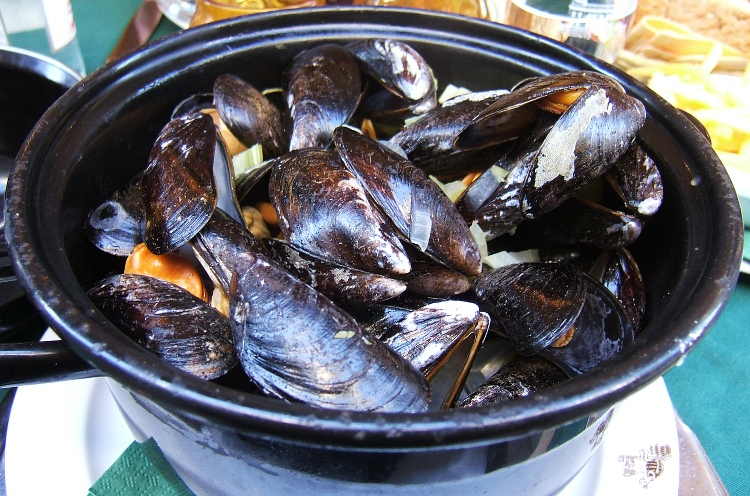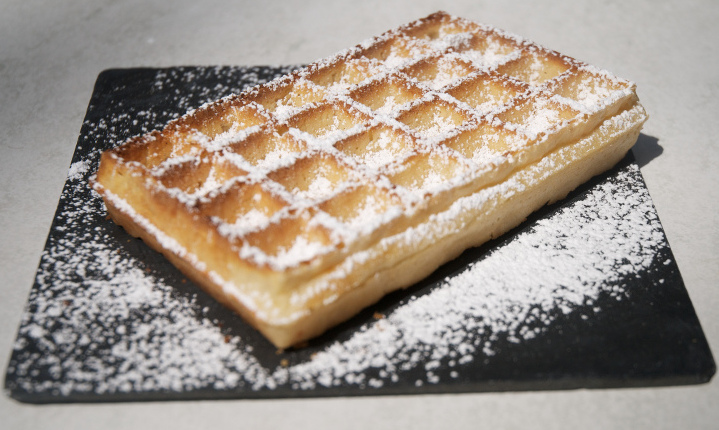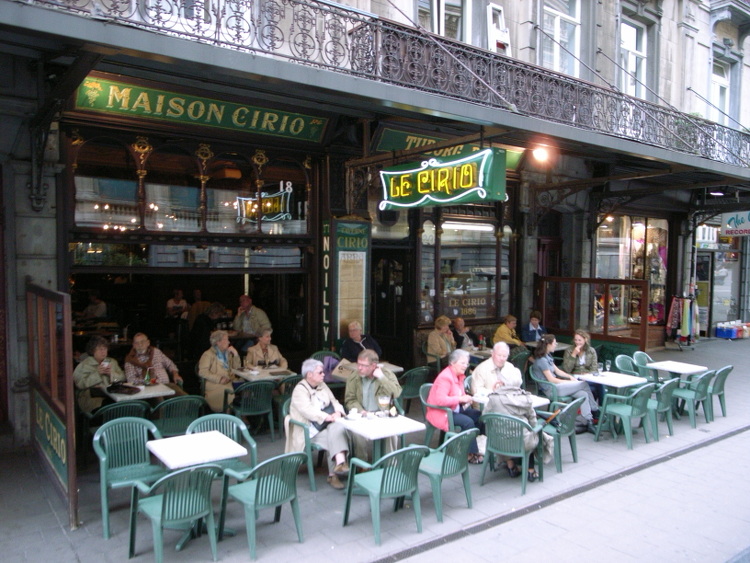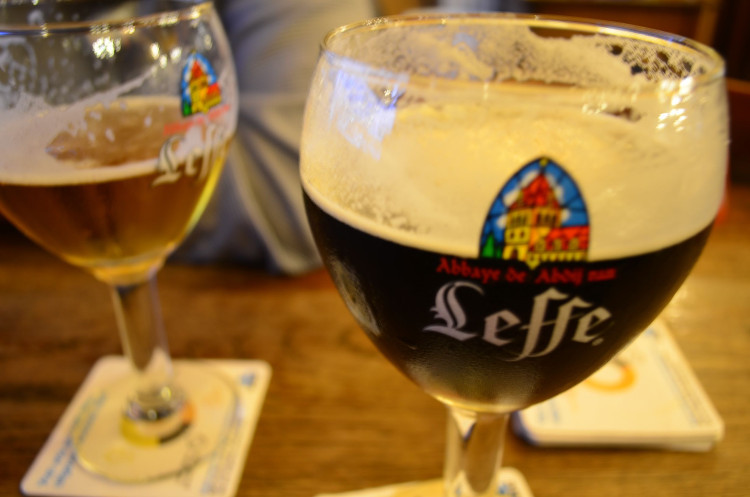This bilingual city has two distinct cuisines: refined French dishes and earthy meat-heavy Flemish food. Plus the immigrant population ensures that there are excellent African, Chinese and Southeast Asian options. Here are our best picks for eating and drinking in the Belgian capital.

Traditional Belgian food is not for the faint hearted, with dishes such as bloedworst (black pudding made from pig’s blood, served with apple sauce), breugel kop (chunks of beef and tongue set in gelatine) and paar de filet/steack de cheval (horse steak). But there are more elegant spins on the local fare available: try La Maison du Cygne, which fuses Belgian and French cuisine and also offers glorious views of Brussels' gabled, gilded Grand Place.
The best way to enjoy legendary Belgian chips is on the hoof, getting a portion to go from a frikot (kiosk). Maison Antoine on Place Jourdan is reckoned to be the best, and you can take-away and tuck into your portion at one of the cafés around the square, just as long as you buy a drink.
The gorgeous Galeries-St Hubert comprise one of the most chi chi shopping arcades in Brussels, where you’ll also find resolutely old-fashioned Mokafé. Here you can get a traditional waffle – not doused in piped cream and sugary sauces as the touristy version has it – but with a dainty dusting of icing sugar. Sit back in your wicker chair, enjoy the waiter service and watch the shoppers pass by.

Lovely old-fashioned brasserie L’Ogenblik is a great place to sample classic French dishes such as Coquilles Saint-Jacques and Chateaubriand. The service is courteous, and the lace curtains and friendly cat lend a homey feel, despite the fact you’re in the heart of the capital. For seafood specials including moules (mussels) cooked in many different ways, head to the fish market area around Ste-Catherine (also famed as Brussels’ low key fashion district).
The working-class Marolles district is a good place to sample some old time Belgian food – you’ll see one of the last traditional snail vendors here, with her wooden cart. For more obviously palatable grub, book ahead to eat hearty Belgo-French food at colourful and quirky L’Idiot du Village. (The restaurant adjoins the famous Jeu-de-Balle flea market, which is well worth a rummage.)
Brussels’ Congolese district – the Matongé – is small but full of flavour. L’Horloge du Sud is the classic place to eat here – the owner is Senegalese and a broad variety of African dishes are served. Otherwise, drop in to the Kuumba cultural centre to ask about tours and events. At their informal neighbourhood parties you can eat home-cooked Congolese food, drink baobab juice cocktails, and pick up a few dance moves.
No one should leave Brussels without checking out the fin de siècle glamour of its classic cafés, with their wrought-iron curlicues, gleaming brasswork and aproned staff. Le Cirio is one of the best, where the standard order is the curious half-and-half, a mix of still and sparkling wine. More downmarket but equally attractive are the brown cafés – one of the most enduringly characterful is La Fleur en Papier Doré, where Matisse once traded drawings for drinks.

The hipster coffee craze has definitively found its way to Belgium, and an array of cool new café-bars has swept the capital – think barista-made coffee, exposed lightbulbs, artfully reclaimed timber, and DJ nights. Many of these places, such as BarBeton, serve epic hangover-busting and healthy brunches. Laidback brasserie Café Belga in the glorious art deco Flagey building – designed to look like a liner – is another favourite.
There’s a reason why Belgian chocolate tastes so good: a minimum of 35% pure cocoa must be used, and low-quality fats are banned. Local chocolatier Laurent Gerbaud has taken the rules a step further, and does not include alcohol, additives or added sugar. This may sound too austere, but the results are intriguing and richly delicious. You can buy Laurent’s chocs across town and eat in his café near the Mont des Arts.
You came, you drank, and now you’d like some beer to take home. Head to the supermarket for standard brews such as Leffe, Chimay and Hoegaarden. But if you want something a little more rarified, try De Biertempel, which stocks more than 700 Belgian beers as well as a fabulous array of glasses, each one designed to match an individual beer. The Jeu-de-Balle flea market is also a great place to collect arcane beer glasses.
